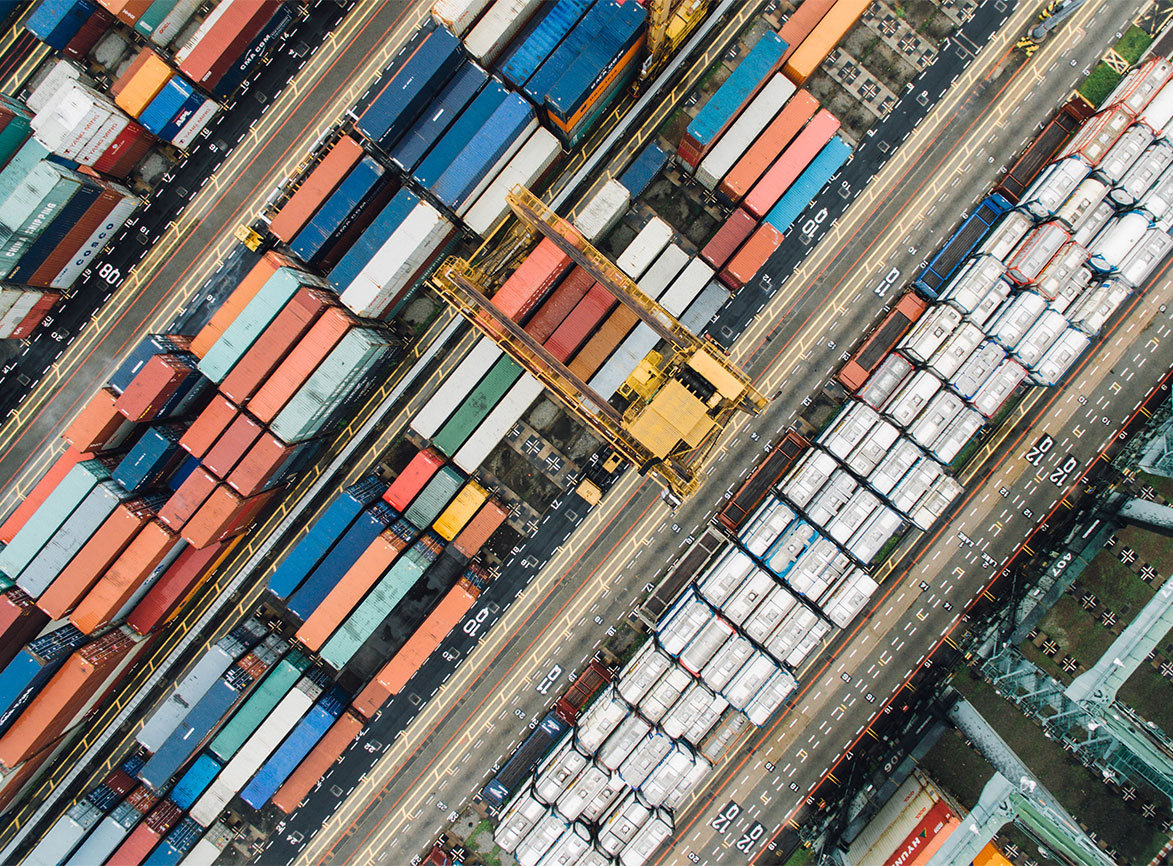Supply chain stakeholders are leveraging the benefits of logistics technologies to meet sustainability goals, but should not forget about the human element.
The changes required to shift from carbon-based fuel sources to 100% renewable energy solutions aren’t going to happen overnight — partly because the US has been considerably slower than the EU and Britain when it comes to cutting greenhouse gas emissions. Converting the domestic energy infrastructure and creating sufficient sources of renewables to meet nationwide energy demands is also going to take time.
The time for significant change is now. Cutting greenhouse gas emissions from the global supply chain is an immediate and pressing concern, and the most effective way to do so — given the tools currently at our disposal — is to embrace new technologies that can optimize freight transportation assets in order to help reduce the carbon footprint of the logistics industry.
Companies recognize the importance of supply chain sustainability
While the initial wave of COVID-19 in early 2020 was incredibly disruptive for supply chains around the globe, recent research from MIT’s Center for Transportation and Logistics (CTL) finds that investments in supply chain sustainability (SCS) were, by and large, unimpeded by the pandemic. MIT CTL’s 2021 State of Supply Chain Sustainability report finds that:
- More than 80% of logistics firms surveyed report that the pandemic either did not impact or increased their commitment to SCS initiatives.
- 83% of firm executives say that the pandemic has either accelerated the adoption of SCS initiatives or highlighted their necessity.
- Of the companies that scaled back their SCS activity, most tended to be smaller (14% of small companies vs 6% of larger firms), underscoring the need for equitable access to solutions that can help companies of all sizes weather supply chain disruptions while maintaining commitments to sustainability.
The report also states that rising pressure from stakeholders — including consumers — seems indicative that improved sustainability practices are market- and industry-wide trends that can be perilous for logistics companies to ignore.
Why Consider a Digital Operating Platform?
Digitizing processes can actually lead to more impactful and effective SCS activity. Automated solutions, for instance, make it possible to streamline operations and achieve levels of logistics agility and efficiency not possible through manual operations, analysis and processes. Digitizing these services can provide logistics companies with increased operational flexibility, making it more feasible to incorporate a sustainability-oriented approach into their core business operations.
Other ways digital supply chain technologies are designed help supply chain vendors: they can minimize empty miles, improve how companies are able to organize and use their resources, and measure the differences in carbon footprint of shipping modes like truck, rail or sea. A majority of consumers already want visibility into the sustainability of their supply chain vendor’s operations. Digital technologies make it possible to measure and track carbon emissions, allowing consumers to see the impacts of their choices. Not only that, research from NYU finds that even in spite of the pandemic, but consumer interest in products also marketed as sustainable and environmentally responsible grew faster than other products.

Beyond the environment
Embracing the operational benefits of new technologies is key to getting ahead for supply chain vendors in today’s increasingly complex logistics context. Working with a trusted logistics partner helps ensure proper implementation and ongoing support for these technologies — which have the added benefit of setting companies up to engage their SCS initiatives more effectively.
But sustainability is not just about the environment. It also applies to the long-term viability of the supply chain technology arena and its workers. Giving employees access to continuing education programs ensures logistics technology will continue to benefit from fresh injections of new ideas and processes, while keeping employees fulfilled. With the COVID pandemic forcing supply chain companies to rethink how they train employees and conduct day-to-day business with their workforce, the time is right to nurture company culture in the supply chain space. That’s why the supply chain technology provider Blume Global partnered with Coursera and Stanford Graduate School of Business to provide new innovative learning paths for all its employees.
“Blume Global’s culture is one of innovation and continual learning, and collaborating with Coursera and Stanford GSB for our education initiatives made perfect sense,” said Blume Global CEO Pervinder Johar. “At Blume, we’re investing in our people so they can invest in themselves, attaining new skills and knowledge they can apply to their careers in supply chain technology.”
Leah Belsky, chief enterprise officer at Coursera, echoed Johar’s comments, adding that using the Coursera platform means that employees benefit from the same standardized, rigorous training wherever they are around the world.
“This program,” she said, “will help learners develop the essential skills needed to unlock new opportunities and advance their careers in the digital economy.”
Shippers, 3PLs and other supply chain stakeholders should embrace supply chain digitization to drive down the greenhouse gas emissions of freight transportation, but also need to think about the longterm health of their companies. Initiating programs to cultivate a curious, knowledgeable set of employees will pay dividends in the long run. Supply chain sustainability comes in many forms.
Blume solutions optimize assets to reduce carbon emissions, eliminate wasteful practices and generate efficiencies across the supply chain by enabling a sustainable, more agile multimodal supply chain. And the company is always looking for forward-looking individuals that want to join the team and spread the Blume Global mission.
As the speed of supply chain disruptions increases, Blume creates technology that allows stakeholders to plan, predict and adjust to keep goods flowing around the world while reducing their carbon footprints. Blume Global is the first fully carbon-neutral global supply chain technology provider. Blume’s cloud-based TMS system allows users to view carbon outputs by transportation mode, route and equipment with shipment-by-shipment granularity; it’s all part of Blume’s commitment to sustainability.
contact us
Contact Us

